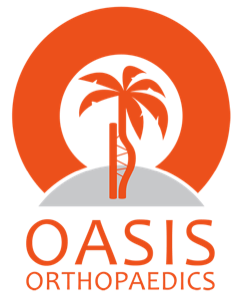
700 Glenhuntly Road
Caulfield VIC 3162
03 9044 4555

700 Glenhuntly Road
Caulfield VIC 3162
03 9044 4555
Surgery Information
-
How to decide if you need surgeryIn general terms, you should take our time to carefully consider the need for surgery, as there is no surgery without an element of risk. The aim of your consultation is to establish a diagnosis and then weigh up the different risks vs. benefits of the various options for treatment. A large proportion of orthopaedic symptoms relate to degenerative conditions that are slowly progressive and are not a threat to life or limb, but are debilitating with regards to function. Often times a patient will be asked to decide whether they can manage with their symptoms if they were to modify their lifestyle, take anti-inflammatories or pain killers or even use a brace/splint. In some conditions, a perfectly acceptable result may be achieved by non-surgical methods – e.g. certain fractures can be treated in a simple plaster cast, some tendon and ligament injuries can be well-healed with the use of a splint for a few weeks. Clearly, these options may be preferable for patients who run significant risks from bleeding or infection, or have poor heart or lung function and couldn’t tolerate an anaesthetic. Alternatively, some low-demand patients may be willing to accept a degree of compromise of their pain/function in preference to the risk of an operation.
Surgery is frequently the preferred option for treating particular fractures, dislocated joints and for orthopaedic tumours/cancers. Setting aside these issues, when the patient has symptoms that are no longer manageable with non-operative methods, then surgery is useful for restoring range of movement, reducing or abolishing pain, correcting deformity, and improving mobility. In higher demand patients such as athletes it may help accelerate recovery/rehabilitation from injuries that may take substantially longer to heal if they were treated non-operatively.
As a rule of thumb, it may be worth considering surgery if the patient is unwilling/unable to manage their pain or symptoms despite having used some form of oral pain relief, if they have restricted movement despite having tried physiotherapy or similar, or if there is progressive or severe deformity of a joint or limb. Similarly, if mobility is limited, the patient finds it hard to maintain gainful employment or cannot sleep because of pain then these would often be reasonable indicators for operative treatment of conditions if non-operative treatment has been incompletely successful.
When a patient becomes aware that their condition (eg hip or knee arthritis) is becoming a disability, that is the time to consider surgery – if not sure, the patient should honestly try to answer the question: “Has my problem (hip/knee) taken over control of the activities of my life?” If the answer is “Yes”, then they have a disability and should consider the need for surgery. -
Perioperative carePrior to surgery, you may be referred to a perioperative physician/anaesthetist who will make an assessment of your overall fitness for anaesthesia as well as ensure that you are as healthy as you can be prior to surgery. You will be required to complete a health questionnaire in most cases, and in those patients who are either undergoing major surgery (e.g. joint replacement) or have significant heart, lung, bleeding/clotting or other general medical conditions, they may be seen by the physician/anaesthetist at a pre-anaesthetic consultation. They will make a clinical assessment of your condition(s) and may arrange further investigations such as blood tests, a heart ECG, lung function testing etc, as well as correspond with your treating specialists if need be. They will also advise you on whether or not to stop or start certain medications prior to surgery. A member of their team (often the same physician) may also be your anaesthetist for your surgery and if you are admitted to hospital overnight, they will also be involved in your post-operative care, helping to manage your pain relief, look after your heart and lung function and help to plan your discharge to home/rehabilitation.
-
Diet and other mattersUnless advised otherwise, you should try to maintain a balanced diet – there are no special supplements required unless you completely abstain from a particular food group (e.g. dairy or protein) although prior to major surgery it may be beneficial to ensure you have sufficient amounts of protein and energy to assist in wound healing post-operatively. You should also try to keep as active as you can without causing undue discomfort – this will help to maintain your overall fitness and flexibility, keep your weight under control and maintain bone quality. Physiotherapy, hydrotherapy and/or Pilates are usually helpful with this.
You should let your surgeon know if you have Diabetes, are on medication to thin the blood such as Aspirin, Warfarin, “Xarelto”, Clopidogrel (“Iscover”/”Plavix”), have any allergies (especially to antibiotics), or if you can foresee any difficulties in getting home or having someone at home to help you once you’re discharged from hospital. These things will need to be addressed prior to your surgery.
Ideally, in the time leading up to surgery you should try to cut down on your alcohol consumption and if possible, cease smoking altogether in order to give you the best chance of good wound and bone healing, reduce your risk of contracting an infection or developing a blood clot in the calf (DVT) and have less chance of interactions with other medications. If possible, the week before your operation you should avoid anti-inflammatory medications such as Diclofenac (e.g. “Voltaren)”, Meloxicam (e.g. Mobic), Naproxen (e.g. “Naprosyn”), Indomethacin (e.g. “Indocid”) or Ibuprofen (e.g. Neurofen) as they may increase the chance of bleeding. Paracetamol (“Panadol, Panadol Osteo”) are fine and should be continued if being taken regularly. In general, if you usually take blood pressure medication, you should continue to take these at the usual time, with a small sip of fluid. Stopping Aspirin prior to surgery should be discussed with your cardiologist (if you have one) and anaesthetist prior to surgery.
Please contact your peri-operative physician and your surgeon’s rooms if you develop any symptoms of a cold, cough, fever or gastro-enteritis, or if you need to cancel your surgery for any other reason in the weeks leading up to surgery. Also, please let your surgeon know if there are any problems with your skin, such as cuts, grazes or rashes on the limb that is due to have the surgery, as these may pose an increased risk of infection and it may be safest to postpone any major surgery until the skin is back to normal. For this reason, it would be wise to avoid gardening, bushwalking or any other outdoor activity where your legs or arms may be scratched and lead to a skin infection prior to surgery. -
Night before surgeryYou will have been given instructions by your surgeon or perioperative physician regarding fasting times and whether or not to take certain medications. In general, if your theatre time is in the morning, you should have nothing to eat or drink after midnight the night before your operation. If your operation is to be done after mid-day, then you should have absolutely nothing to eat or drink after 6am on that morning (including lollies, chewing gum, milk etc). In general, a light breakfast of unbuttered toast and black tea is advisable, prior to 6am. You may be able to take some medications with a sip of water up to three hours before your procedure.
You must not drink any alcohol or smoke cigarettes 24 hours or more before surgery.
You should avoid wearing any makeup and remove any nail polish and all piercings the night before your procedure. Avoid bringing any jewellery to hospital with you, and do not wear contact lenses – please wear glasses instead. You should wear loose, comfortable clothing that is easy to remove and put on. If you are having an overnight stay you may wish to bring a pillow, toothbrush and a change of casual clothing as well as pyjamas.
You should have a shower the night before or on the morning of surgery, if possible with a chlorhexidine based skin wash, which may be purchased from your local chemist*. This will help reduce the number of germs on your skin. It is best that you do not shave the operative region or apply any creams/moisturisers to the area.
*Chlorhexidine Skin Wash/Lotion or Gamophen soap -
Day of surgery and admission to hospitalYou will usually be admitted to hospital on the day of your surgery. After checking in at the Admissions desk, you will be prepared for surgery by nursing staff. This will involve checking that your consent form is complete, getting changed into a hospital gown, having a patient ID bracelet put on one wrist and one ankle, and may involve you putting on special stockings (TEDS) to help prevent development of a blood clot in your calf (DVT).
Your surgeon and your anaesthetist will see you before your anaesthetic and will confirm with you which limb and what operation is being done. Nursing staff or the surgeon will ususally mark the limb, and may remove hair from the operative region using electric clippers. The limb may also be given a “pre-wash” with antiseptic.


